Why this climate activist set up a restaurant that serves organic food
“One ounce of practice is generally worth more than a ton of theory” –
Dr E F Schumacher, Founder, Practical Action.
Anoop Poonia is a firm believer in this and that’s what sets him apart from your regular slogan-shouting climate activist. His career may not have followed a straight trajectory into the world of climate politics, but what comes across, in its many twists and turns, is a commitment to green issues in all their myriad forms, and the ability to challenge the status quo. He has helped lay the foundation for many green startups like Indian Youth Climate Network (IYCN) that mobilises young people to take action on climate change. He then went on to set up the first-of-its-kind farm-to-food restaurant in Udaipur. Millets of Mewar was rated No. 1 on Tripadvisor within a few months of being established.
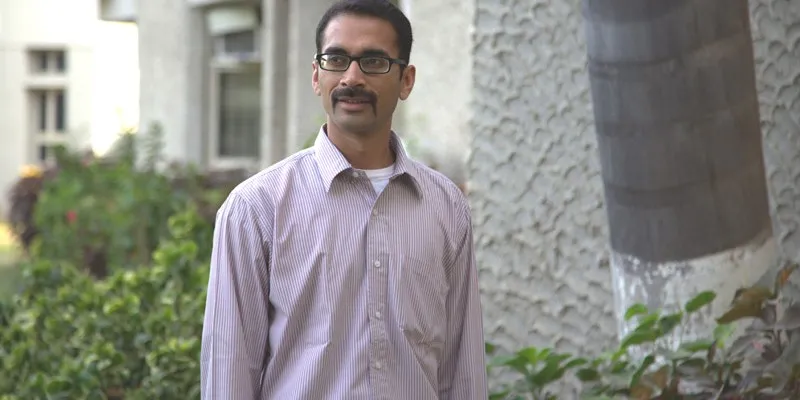
Anoop’s foray into the world of green issues wasn’t smooth. It was in college, where he was pursuing a degree in marketing, that he started his entrepreneurial journey. In partnership with a senior, he set up a company that focussed on exporting Indian artisans’ products via the Web. To some extent, says Poonia, this venture combined all three areas of his interest – trade, political economy, and environment, ‘as trade injustice, over-sized corporations’ control on a nation’s policies, unsustainable resource extraction were all issues I wanted to address’. He worked hard to build a small click-n-mortar combo start-up called AAFFREEN to make an entry into the chaotic and vast area of international trade. He was helped by e-platforms such as Indiamart.com and Alibaba.com. After two years of doing decently well, the lack of deep pockets and capital forced him to move on. But this brief venture taught him a lot about running his own enterprise. It also brought the satisfaction of supporting India’s small-scale artisans. Yet, there was a growing sense of frustration, admits Poonia. “There came a time when my scope for influencing a company from within met with my own lack of patience, since the corporate process towards welfare was excruciatingly slow. By that time, I had already discovered climate change as a growing issue”.
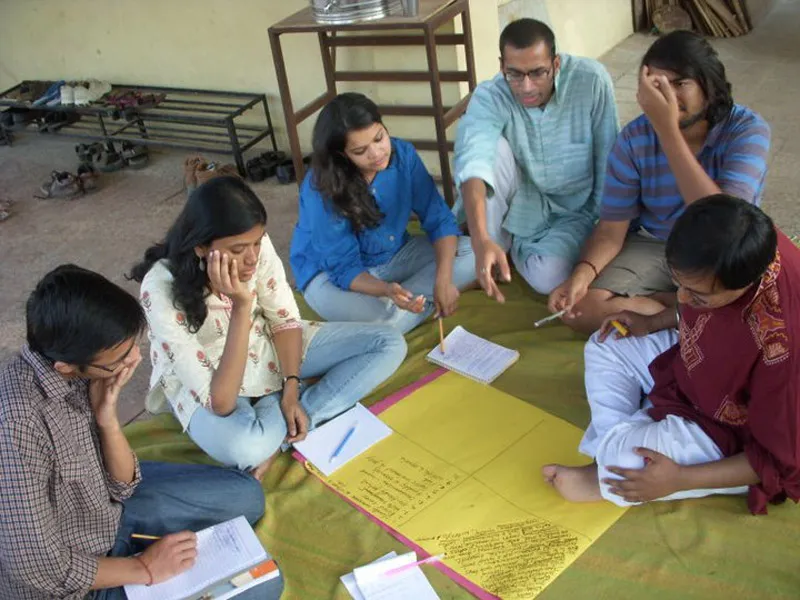
It was in 2008 that an e-mail applying for a seminar on climate change organised by and for youth set his life in another direction. He met a bunch of young people from different walks of life, and found himself, as he puts it, ‘rather addicted’ to all kinds of climate activities they were doing. This cross-engaging involvement culminated in the forming of IYCN, which he founded with colleague Karthikeya Singh. It was a one-of-its-kind network of 21-28 years old, who were passionate about climate issues.
The IYCN went on to be an eclectic mix of visionary, daring, and energetic people who made it their business to act on climate change while inspiring other young people to do the same. Soon, the network grew from six big cities in India in 2009 to 18 big cities and small towns in 2011.
But is working on climate change all talk? And how has he, through his involvement with IYCN, been able to see a more concrete transition towards low-carbon lifestyles? Poonia is proud of the fact that during the time he was at the helm of the organization, the most common impact he witnessed was shifts in education choices – some of which were as dramatic as petroleum/chemical engineering graduates choosing to do their post-graduate degrees in environmental/sustainable energy studies. A lot of school students also chose options as close to sustainability as their institutions offered, such as learning architecture to make green buildings. Some of them started professional ventures offering eco-climate solutions adding to the climate movement.
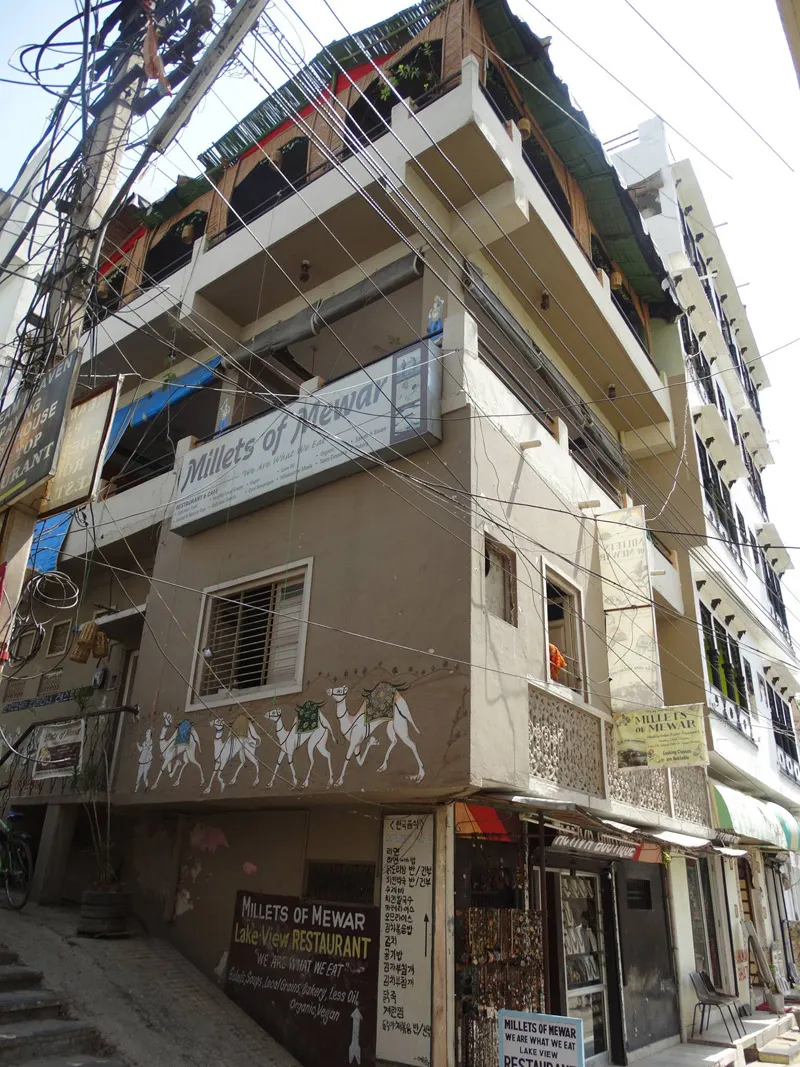
Through IYCN, they partnered with local government units such as the Bangalore IYCN Chapter for lake conservation and waste management. The Hyderabad Chapter promoted chemical-free green Ganesha idols for immersion in the local lakes in the city and the J&K Chapter set up water plants to avoid the purchase of plastic water bottles during the Amarnath Yatra. At an international level, Article 6 of UNFCCC that relates to environmental education also had IYCN members contributing to advocacy for its framing. Former Environment Minister Jairam Ramesh had quoted IYCN on the floor of Parliament indicating the significant role the youth plays when it comes to climate action. There was also interest generated among the Defence Forces when certain wings and units contacted Poonia and his team for technical advice on actions they could take for making their surroundings climate-friendly. As a proof of all the changes young people can initiate when given the right guidance, Poonia keeps a slideshow of students who joined IYCN network and have done something inspirational since they joined the network. From 30 slides, this collection today has expanded to 100 slides, a quiet affirmation of his work.
While volunteering as a climate activist is easy, the question is how do you find the money to support yourself? It is this quest that led him to get involved in a green startup and actually practise what he had been preaching to students all these years. And that’s how the idea of a farm-to-table restaurant in Udaipur happened.
Says Poonia “We found a beautiful location, which already had most of the required equipment, cutlery and furniture from the previous restaurant being run at the same location. We only had to provide security and pay the monthly rent”. Devoid of any other reliable eco-climate business idea at the time, and fired by the need to make money soon, and full of confidence that his colleagues’ tasty food-craft would be popular with liberal-experimental travelers, he took the plunge for a six-month phase.
And that’s how Millets of Mewar happened. Its USP was to attract both domestic and foreign customers as well as be a responsible business. Customers who were happy posted their real-time reviews on Tripadvisor, a website that was catching on, compared to Lonely Planet that reviews places only once in two years.
Within four months of opening, Millets of Mewar was ranked the #1 restaurant in Udaipur on TripAdvisor and the restaurant was becoming a profit-making venture. And the reason this happened Poonia emphasises is because they were one of the few restaurants in Udaipur offering local, organic, traditional healthy grains (millets) that were a healthy alternative to white sugar, white flour, and oil. Everything about the restaurant was local including the décor, which was traditional, local, hand-made/painted – a.k.a creating a minimal ecological footprint and representative of local culture.
Another friend in Udaipur, who was also keen to work on food and sustainability had just started under the name Banyan Roots with the aim of procuring organic crops from local farmers. Soon Millets of Mewar became the institutional bulk buyers for Banyan Roots. Overtime, his friend’s portfolio of products increased, helping Poonia’s menu become increasingly organic. The greater revenue inflow into Banyan Roots helped train and support more farmers to convert to organic methods. In the process, claims Poonia proudly, both Millets of Mewar and Banyan Roots became pioneers of locally sourced organic food in Udaipur, supplying raw and cooked food choices to customers. A traveler customer-friend helped with a pencil-based creative art design of the menu and soon they were told that customers would travel to Udaipur just to eat at this unique restaurant.
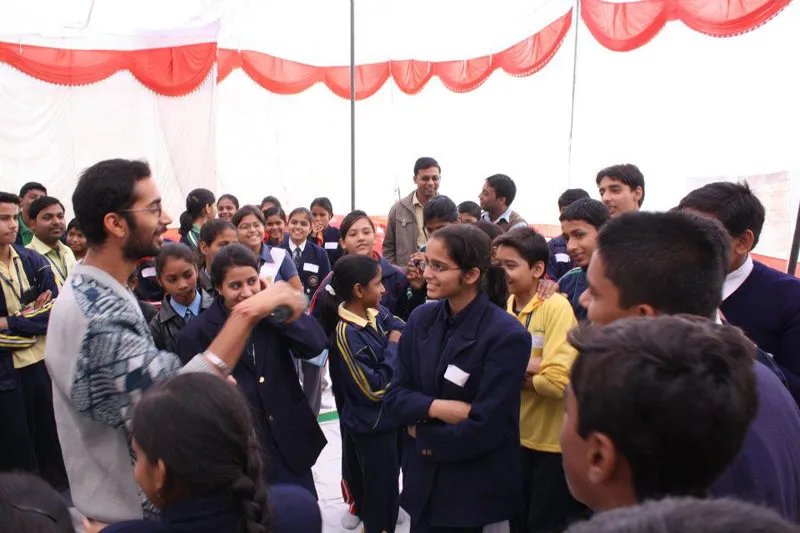
So how easy is it to set up a green business? Admits Poonia – “It’s not easy to believe in the truth of a green business. An organic certification is a standard expectation and our vendor-friend consciously did not go for it. The produce would have become costly making it impossible to secure customers. We supported his decision and invited our customers to visit his farmer-network’s farms as well as volunteer there for few days, weeks or months on the farm so they could believe in the products and the process. Looking back, Poonia sees Millets of Mewar as more than just an eating joint – “it’s a form of activism blended with the entrepreneurial approach”. Four years after he started the venture Poonia realised his role in daily operations had become redundant and marketing was happening by word-of-mouth, traveler guide-books and websites. He started missing the space of climate activism, so he handed over the restaurant operations to his partners and moved on.
In 2014, he helped another friend Gouri Gupta establish her green startup in Mumbai. Gouri was running a home baking enterprise making energy bars, cereals and brownies. Poonia brought in millets and other organic ingredients from different parts of India and helped Gouri to establish a health food and bakery commercial kitchen unit in a charming location of Mumbai. Today, she runs a viable business and her recipes comprise purely natural ingredients such as seeds, nuts, palm jaggery with no preservatives. The most popular items are five types of energy bars, three types of muesli (breakfast cereals), and brownies. All her products can be ordered from www.gourigupta.com
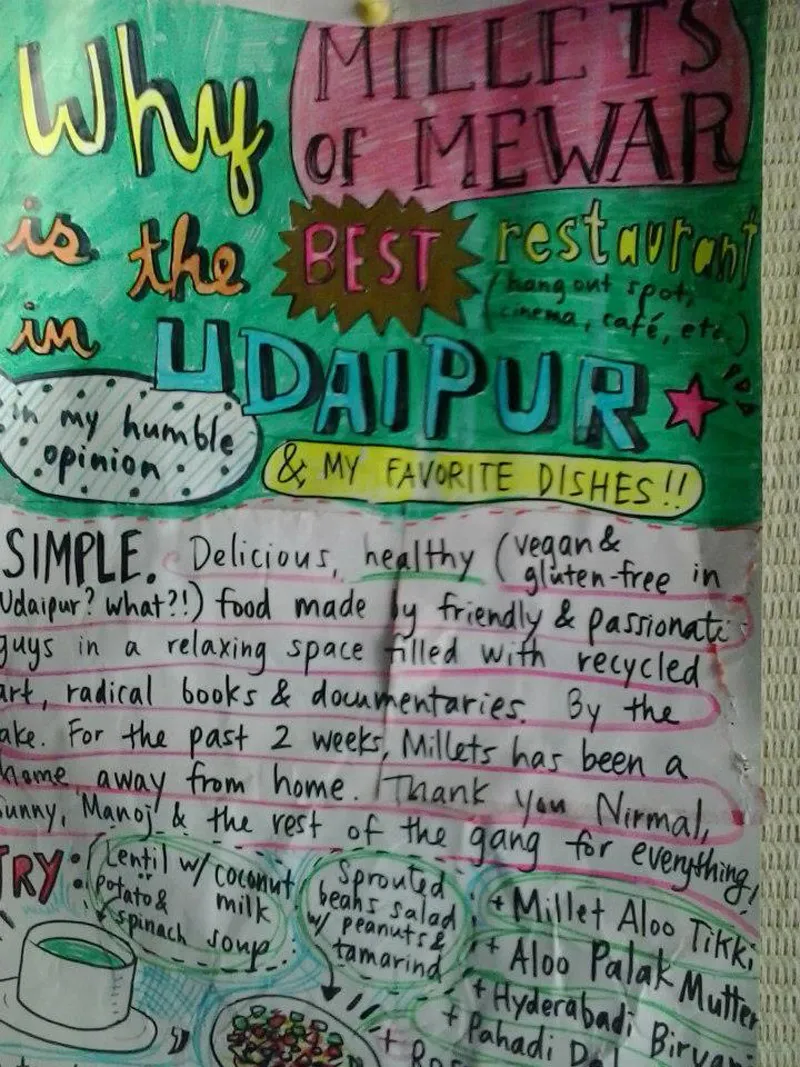
Poonia continues to combine his work on climate advocacy with hands-on sustainable living. He was able to witness firsthand the politics of the developed vs. the developing world at the recently concluded UN Climate Summit in Paris. But, here too, the focus was on results – he coordinated the global NGO community’s policy positions and advocacy efforts for developed countries to deliver reliable finance through suitable instruments in a timely manner to poor and developing countries, who will continue to face devastating climate impacts for no fault of theirs. For Poonia, the policy to practise connect is imperative. He sums this up saying, “I am writing about green weddings, sustainable events management, and sustainable cafes to keep me creatively interested in the cause, even as I share useful tips with the growing community of green earthlings”. As Anoop Poonia makes his foray into climate politics, here’s wishing more power to the green hero.







